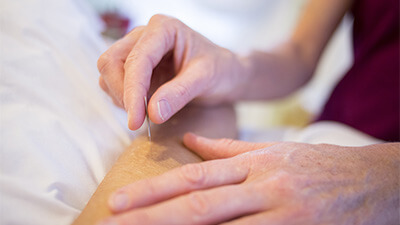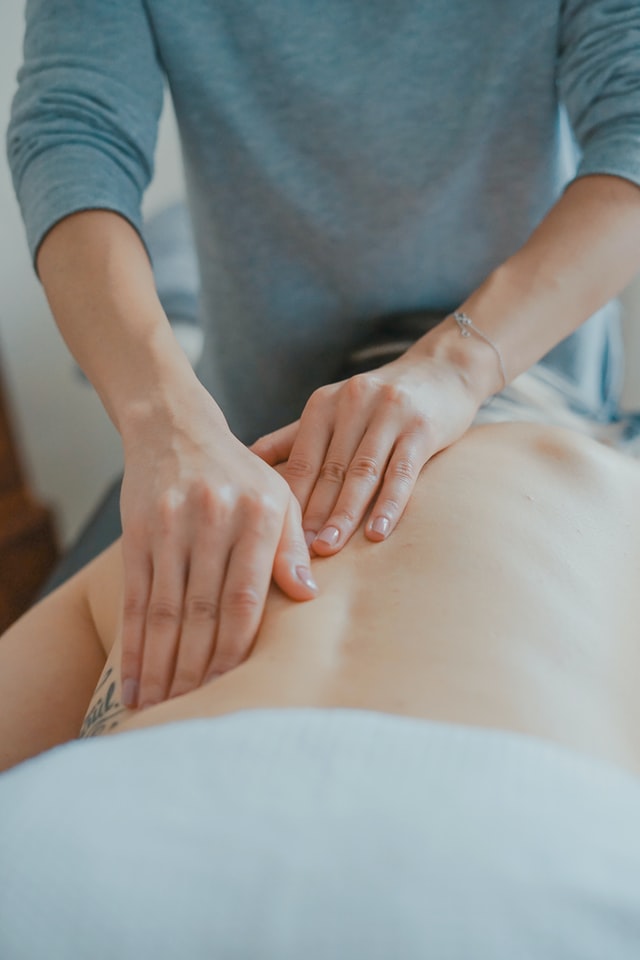Acupuncture has gained widespread popularity in recent years among both holistic medicine devotees and sceptics alike. This is due to its medically-proven effective treatment of many ailments such as nausea and osteoarthritis. But what is acupuncture? How does it work? And should you try the treatment yourself? As we offer acupuncture to our clients here at London Natural Therapies, we have all the answers to the most commonly asked questions about the practice.
What is acupuncture therapy?
Acupuncture is a treatment originating in ancient Chinese medicine which involves inserting thin needles into different parts of the body depending on the issue you are trying to solve or avoid. According to the belief at the core of the practice, energy (or Qi) flows through the body in recognisable pathways called meridians. This energy is responsible for our health, so disruption causes disease. The human body has over 2,000 pressure points along these meridians, allowing therapists to improve the course of Qi through the body using acupuncture in those areas. The Western explanation of acupuncture’s effectiveness is that by creating small microtraumas to the skin, the needles induce the body’s natural ability to heal itself.

What is acupuncture good for?
Acupuncture has been scientifically proven to be incredibly effective in treating and preventing certain health issues. It is particularly useful for hormonal imbalance and pain relief. The National Institute for Health and Care Excellence (NICE) recommends acupuncture as a treatment for chronic tension-type headaches and migraines, however, there is some evidence that it can be beneficial for other conditions too, including:
- Side-effects of cancer treatment (chemotherapy)
- Muscle pain (including back, neck and knee pain)
- Menopause and hot flushes
- Irritable bowel syndrome
- Menstrual cramps
- Dental pain
- Post-operative pain
What happens during acupuncture?
Initial appointments differ in length, but are usually between 20-60 minutes. Your acupuncturist will discuss your condition, examine your body and assess your medical history, and then push the needles into acupoints. The insertion will occur with you either sitting up or lying down, and you may be asked to remove items of clothing for better access.
Acupuncture needles are hair-thin, single-use and sterile, and only a few centimetres long. The depth the needles will reach after insertion depends on the aim of the treatment, and can vary from just under the skin to all the way to your muscle tissue. Once they are appropriately placed, they may be left for a duration ranging from a few minutes up to half an hour.
Is acupuncture painful?
As acupuncture needles are far thinner than medical needles and are solid (not hollow), the insertion itself may feel like a small prick but it should be less noticeable than a vaccine or blood draw. You may feel heaviness or numbness for the period the needles are in. However, while a tingling sensation is common, you shouldn’t experience any pain beyond a dull ache. If so, notify your acupuncturist immediately.

Is acupuncture safe?
When a qualified practitioner performs acupuncture, overall it is a very safe procedure where any side-effects tend to be rare and minor. These may include bleeding or bruising where the needles puncture the skin, drowsiness or dizziness, or feeling sick. It is important to tell your practitioner in advance if you are pregnant, suffer from a bleeding disorder, have a metal allergy, or have sustained an infection in the areas where the needles should be inserted.
In England, there is no statutory regulation of acupuncture treatment, however, you can still ensure your acupuncturist is qualified by checking if they are a regulated healthcare professional (like a doctor, nurse or physiotherapist), or if they’re a member of a recognised national acupuncture organisation. At London Natural Therapies, all of our practitioners are highly qualified and experienced, giving you peace of mind that your treatment will go smoothly.
How can you tell if acupuncture is working?
Acupuncture is a highly beneficial treatment but sometimes it can be difficult to notice an improvement without paying attention to certain elements post-session. The key thing to notice is change, whether that be the severity or intensity of pain, or quality or schedule of sleep, for example. Other common results of acupuncture include improvement in mental health, which can manifest in mood and energy levels, as well as mindfulness and body awareness.
What should you not do after acupuncture?
While acupuncture is a safe and effective practice, there are some activities that it’s best to avoid soon after a session. We suggest avoiding screens and blue light as they can diminish the relaxing benefits that may improve your quality of sleep. Exercise is allowed, however, forego strenuous workouts like running, spinning or lifting heavy weights and instead reduce the level of difficulty of your normal exercise routine if you plan to work out after an acupuncture session. You should also limit your consumption of caffeine, alcohol and junk food, as they can dehydrate you and reintroduce toxins into your body, preventing the treatment from reaching its maximal benefit. If you suffer from some physical pain after acupuncture, don’t treat the area with ice — heat is more effective.

